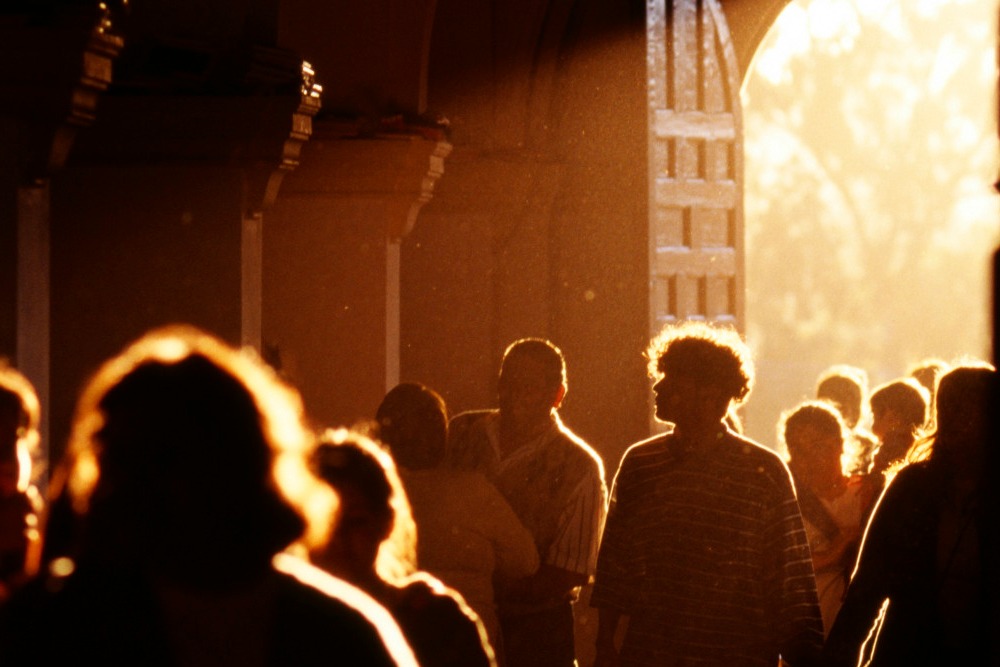“The Lord spoke to Moses, saying: Speak to Aaron and his sons, saying, Thus you shall bless the Israelites: You shall say to them, The Lord bless you and keep you; the Lord make his face to shine upon you, and be gracious to you; the Lord lift up his countenance upon you, and give you peace. So they shall put my name on the Israelites, and I will bless them.”[1]
In the Jewish tradition the Levites, the sons of Aaron, had two main functions – to offer sacrifice to God in the Temple and, as we read in Numbers, to bless the Israelites using the name of God. Through this sacrifice and blessing they carried out their task of sanctifying the people and keeping them in union with the Lord. The triple blessing found in the Book of Numbers continues to be used right to the present day, found in the Roman Missal as one of the optional Solemn Blessings to be given at the end of Mass. It has always been a powerful reminder for me that what we celebrate in the Eucharist has its roots in the faith and traditions of the Jewish people.
There are a number of options given in the Missal for blessing the people: the simple “May almighty God bless you, the Father, and the Son, and the Holy Spirit,” the brief one-stanza prayers over the people, and the Solemn Blessings. Each of these options is meant to remind us that, having been nourished by the Word of God and having received the Body and Blood of Jesus Christ, we are not supposed to remain here. The blessing at the end of Mass is a rallying cry, an exhortation, a final reminder that we are charged as the Body of Christ to go out and take the message of the Gospel into the world. I have sometimes heard from students that they do not see the point of going to Mass because it doesn’t “do anything.” I often will point to other students, the ones who are leaders in their peer groups and on campus, the ones who help out at the local food shelves, the ones who planned a series of events this semester to carry out the corporal works of mercy – and I will point out that these students are daily Mass attendees. I am heartened to see these students taking the blessing that they have received at Mass and turning around to give it to others.
Pope Benedict XVI, in his Apostolic Exhortation Sacramentum Caritatis, drew the connection between the words of the blessing and the concluding words of the Mass: Ite, missa est. This idea that the Mass sends us out on mission has become an essential part of the life of the Church, yet still there are those like my students who do not see the connection. Benedict urged the composition of “new texts, duly approved, for the prayer over the people and the final blessing, in order to make this connection clear.”[2] These blessings should give us the strength and courage to take the message of Jesus Christ to all whom we meet. By the dialogical nature of the blessing, our triple “amen” response, we are invited to take active ownership of our faith and in the mission we have been given as the Body of Christ.
This weekend we will celebrate Pentecost, the “birthday” of the Church. The Solemn Blessing for Pentecost illustrates well this idea of taking what we have received in the Mass and bringing it to all people.
May God, the Father of lights,who was pleased to enlighten the disciples’ minds
by the outpouring of the Spirit, the Paraclete,
grant you gladness by his blessing
and make you always abound with the gifts of the same Spirit.
R/ Amen.
May the wondrous flame that appeared above the disciples,
powerfully cleanse your hearts from every evil
and pervade them with its purifying light.
R/ Amen.
And may God, who has been pleased to unite many tongues
in the profession of one faith,
give you perseverance in that same faith
and, by believing, may you journey from hope to clear vision.
R/ Amen.[3]
Chris Labadie is a 2009 graduate of Notre Dame with a degree in theology and philosophy. He holds a Master's degree in liturgy from the Saint John's School of Theology and currently serves as the Director of Liturgy at the University of St. Thomas in St. Paul, Minnesota.
[1] Numbers 6:22-27 (NRSVCE)
[2] Benedict XVI, Sacramentum Caritatis, 51
[3] Roman Missal, 142.8
